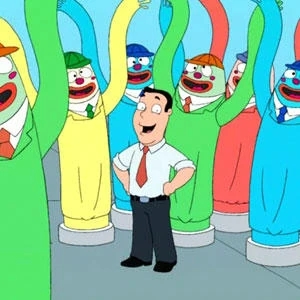I’ve finally given in and started using Spotify on a regular basis. In a perfect world, I’d still keep up my playlists in iTunes like in the old days, but I’ve grudgingly come to accept that letting the app play a larger role in what I listen to is more convenient… even if it still doesn’t quite grasp the peculiarities of my musical taste.
In any case, one of the unexpected perks I’ve found with Spotify is having audio books available. More particularly, I should say that audio books are available sometimes, because listening to those is limited to 15 hours a month. That’s fine for some books, but diving into anything in the Game of Thrones family is a bit challenging.
Like Spotify itself, I was absolutely prepared to hold out against audio books. That said, I’ve honestly come to enjoy them and spend as much time with a book humming along in the background as I do music or podcasts. That’s all well and good, except I keep finding myself running into Spotify’s somewhat inexplicable 15-hour cap… which is just a touch frustrating when you’re in the middle of a book.
This all leads to an obvious decision point. I could simply wait and finish next month, using the time already included in my plan, I could ante up another or $12 for Spotify to give me an additional ten hours of book time, or I could just subscribe to yet another app to handle my audio book needs. None of those options feels great, so I expect it’s just a decision about what will feel like less of a pain in the ass.
Yes, I know there are free options through the local library. What I’ve found while looking into that is that most of the books I have teed up are waitlisted. So far, I’ve mostly been using audiobooks to revisit some old favorites that I don’t necessarily want to take the time to re-read in paper form. As parts of a series, I need them to be available in the proper order and when I’m ready for them. What I’ve seen so far from the library doesn’t fill me with great confidence their service will fill that bill. Maybe that would be less of an issue if my interests and use case shifts over time.
In any case, it feels increasingly likely that I’ll just throw more money at Spotify for the same reason I keep throwing money at Comcast. I like the idea of having my music, podcasts, and books bundled in one app the same way I appreciate the old-fashioned single point of entry for television that cable provides. I’m sure there’s a cheaper way t get there from here, but unless it’s also more convenient, I’m not sure it’s the real winner.
